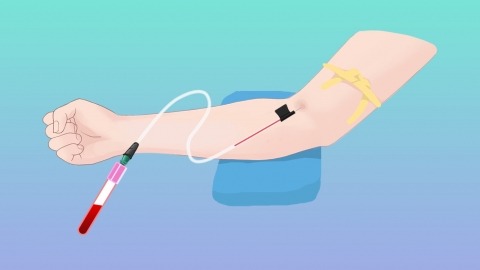Does appendicitis require a blood test?
In general, whether blood tests are needed for appendicitis depends on the specific condition. Blood draws are typically required when appendicitis is suspected or confirmed; however, if abdominal pain is mild and appendicitis is highly unlikely, blood testing may not be necessary. It is recommended to seek medical attention promptly so that a doctor can evaluate the situation and make an informed decision. Detailed analysis is as follows:

If symptoms suggestive of appendicitis—such as shifting pain to the lower right abdomen, nausea, and vomiting—are present, or if a physical examination by a doctor preliminarily indicates appendicitis, blood tests are usually required. These tests assess parameters such as complete blood count and C-reactive protein levels. Elevated white blood cell count and increased neutrophil percentage help determine the presence and severity of bacterial infection, providing critical information for diagnosis and treatment planning.
If only mild abdominal discomfort is present, and through patient history, physical examination, and imaging such as ultrasound, the doctor determines that appendicitis is very unlikely and attributes the pain to minor causes like gastrointestinal dysfunction, blood tests may not be needed. Excessive testing not only increases medical costs but may also subject patients to unnecessary discomfort from venipuncture.
Once appendicitis is diagnosed, follow medical advice for treatment. After surgery, ensure adequate rest, gradually transition your diet from liquid to normal food, keep the surgical wound clean and dry, and promote recovery.






